This has transformed Miami into one of the most dynamic real estate markets in the U.S. In May 2024, the average home price in Miami stood at $1,748,798, compared to $1,265,856 just a year ago. According to the Broker One platform, the property selling time has slightly increased. It takes 61 days to close a deal in 2024, compared to 56 days the previous year. At the same time, 16,924 homes were sold over the year, compared to 19,060 the last year. According to Global Bankers Realty Group as of early 2024, the median sale price for homes in Miami has escalated to approximately $602,000, marking a 7.4% increase from the previous year.
Furthermore, Miami is a vacation hotspot and along with property appreciation, there is also healthy cash flow from rentals due to high year-round tourist traffic. But to participate in the booming short term rental market you will need to have the proper state and local licensing. You can navigate the complex federal and local laws on your own, or you can use the services of Stay Today. For just a thousand dollars document processing fee Stay Today Inc. (does not include state, county, or city fees) can file for and receive for you all of the necessary documents you need to launch your short-term rental property.
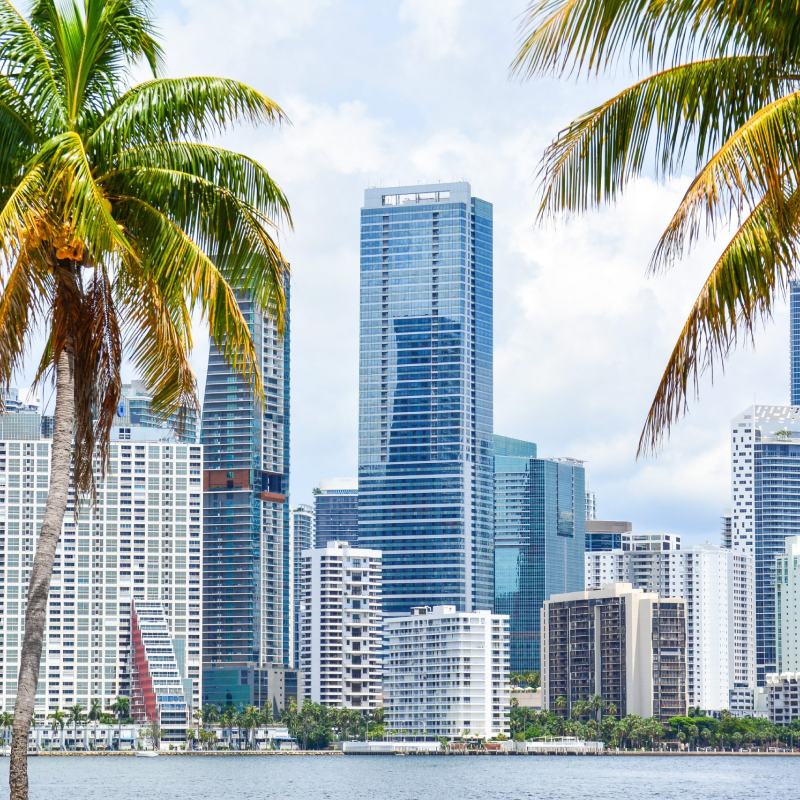
Short-Term Rental Licensing Summary
- Obtain Florida state DBPR license (dwelling or condominium)
- Register with the Florida Department of Revenue
- Obtain a Miami-Dade Certificate of Use
- Check if your property is in a permissible transect zone in Miami or Miami Beach
- Obtain a Certificate of Use if in the City of Miami
- Obtain a Resort Tax Registration Certificate if in the City of Miami Beach
- Obtain a Business Tax Receipt from the City of Miami or Miami Beach
Florida's Short-Term Real Estate Licensing Framework. Rules of the Sunshine State
It’s important to note that there are several types of licenses depending on the type of property being offered for short-term rental. For condominiums and cooperative real estate, you’ll need a vacation rental condo license. A vacation rental dwelling license is provided for single-family home units, townhouses, duplexes, triplexes, or quadruplexes.
Florida DBPR rental license is $90 for six months or $170 for a year. Add the application fee, another $50. In case of dealing with multiple units, you can apply for a group license. To accurately calculate the application cost, it’s best to use the online calculator. It’s worth noting that the license expires on October 1st.

Miami-Dade Features
Miami-Dade County is the most populous county in Florida and the seventh-most populous county in the United States. There are some special short-term rental rules, which must be followed alongside the state of Florida requirements.
If the unit is part of a condominium or homeowners’ association the written authorisation for short-term rental is required. Another important document is the Certificate of Use from Miami-Dade County. The Miami-Dade County Certificate of Use is $136.17, including $36.70 for a certificate, $89.97 for inspection, and $9.50 for the surcharge.
Within 10 days of submitting the application and payment, you’ll be asked to schedule an inspection. You’ll be required to provide all licenses, records, and any other documentation confirming full compliance with the requirements of the state of Florida and Miami-Dade County for vacation rentals. You can reschedule the inspection by calling Miami-Dade County’s Zoning Permits Section at (786) 315–2660.
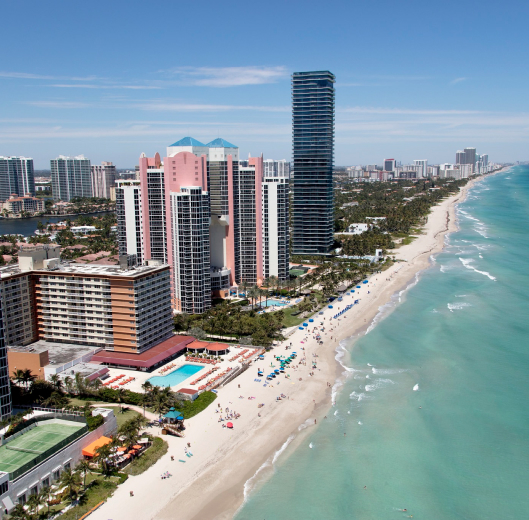
If the inspection is successful, you’ll receive an official certificate to print out and display at the rental property unit. The certificate and its number must be visibly available to potential clients.
The Miami-Dade’s Certificate of Use is valid for one year. It can be renewed annually provided all requirements are met. A crucial condition is no outstanding fines or liens for violations of Miami-Dade’s County Code.
You can avoid these hassles by contacting the knowledgeable experts at Stay Today Inc. Just a $1,000 fee will spare you from the laborious document preparation and visits to the municipality, or tax offices, saving time to develop your high-income real estate business in the state of Florida. Save time with Stay Today.
Additional Miami-Dade Requirements
There are some additional requirements for low-density residential areas, also known as estates. The responsible party or host must reside in it for more than six months in the current calendar year to make such a property available for short-term rental. The low-density zone status can be verified on the CDMP Land Use Plan Map.
Short-term rental also entails maintaining a registry that includes the names and stay dates of all guests. Such a registry must be open for inspection by Miami-Dade County authorities.
Some Points of Pool Safety
Miami-Dade County has additional requirements regarding short-term rental units with pools. To accommodate families with children under 6 years old, pools in such areas must adhere to four safety functions:
- Pool safety barrier
- Pool safety cover
- Pool alarm
- Door latch/alarm
Access for children under 6 years old must be restricted if the pool does not meet these requirements. This rule does not apply to shared pools in condominiums with ubiquitous access for all residents.

Miami Short-Term Rental Requirements
The rental market in the Sunshine State and its largest city is strongly influenced by modern digital technologies. Since 2017, several litigations have occurred, during which global online marketplace for short- and long-term homestays Airbnb and the Сity of Miami were clarifying the status of apartments for short-term rental. It resulted in a settlement. Both sides claimed victory, while Miami city officials proposed a land use category called ‘Apartment Hotel,’ which distinguished from lodging use and residential use.
Zones where short-term rental is allowed have appeared on the city map. You can see Miami’s transect zones and current permitted land use (residential, mixed-use, or commercial) on the official Miami zoning map.

How to use it? Click ‘Tools’ in the upper right corner, select the ‘Layers’ button, and turn on the ZoningMiami21 layer. Zoom in to see the transect zone labels. Click on the unit on the map and select the ‘Land Use’ tab to see the current and future land use.
Miami lodging allowance by zones:
- Allowed by warrant: T4-R, T6-L, T6-O, CI-HD, D1.
- Allowed by right: T4-L, T4-O, T5-L, T5-O.
- Allowed by exception: T5-R, T6-R.

Property Status Change
You can change the land use designation by submitting the form to the Miami Building Department if the property is located in one of these zones. Floor and site plans approved by an architect, engineer, or general contractor with a business license in the state of Florida and the city of Miami will be required to process the change of use. Additionally, the building must comply with all lodging building codes and fire codes.
To check for short-term rental permits, contact the Miami Zoning Department at (305) 416-1499 or the Miami-Dade County contact number (311). You can also visit the Miami Building and Zoning Department in person at 444 SW 2nd Ave., Miami, Florida, 33130.
If the property is in an allowed zone and its land use falls under the category of residential, you’ll need to obtain a Certificate of Use and a Business Tax Receipt from the City of Miami. This requires a Certificate of Occupancy issued by the Building Department, reflecting your building’s permission for land use as residential.
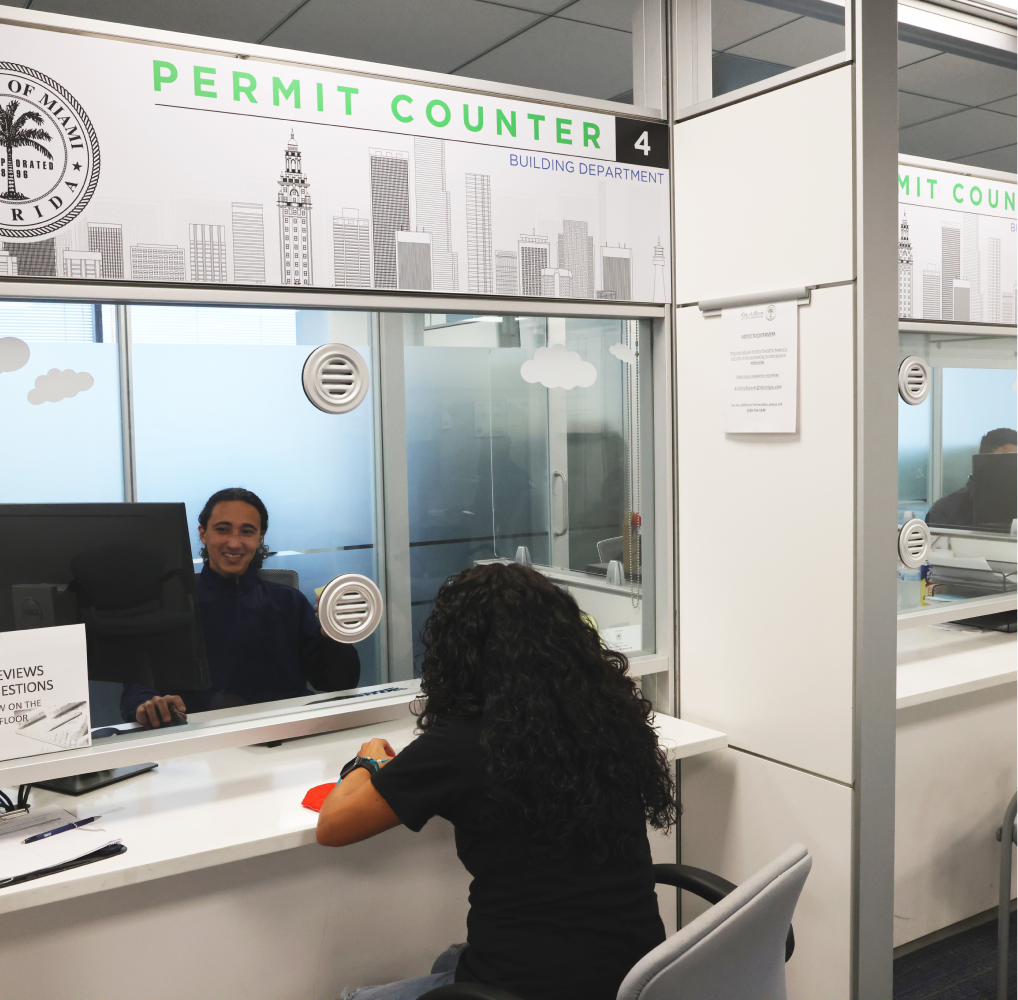
Specific Short-Term Rentals Requirements in Miami Beach
To operate the property in the Miami Beach area, a business tax receipt, and a resort tax registration certificate are required. Potential applicants and current certificate holders are advised to register on the new website. There, you’ll find the resort tax registration form.
Steps to take before applying for a business tax receipt:
- Check the building’s eligibility for short-term rental at the Miami Beach Zoning Department (305) 673-7550.
- Check the need for a building permit with a change of use at the Miami Beach Building Department (305) 673-7000 ext. 6675.
- Check the validity of your business license
- Ensure compliance with regulations at the Fire Prevention Division (305) 673-7123, Code Compliance Department (305) 673-7555, and Building Department (305) 673-7610 ext. 2555, 6382, or 6045. Otherwise, the application for a tax declaration will be suspended.
The business tax receipt and resort tax registration is $196.50, Including $69.00 for a license, $57.50 for a Fire fee, $45.00 for an Application fee, and $25.00 for a Resort Tax Application fee.
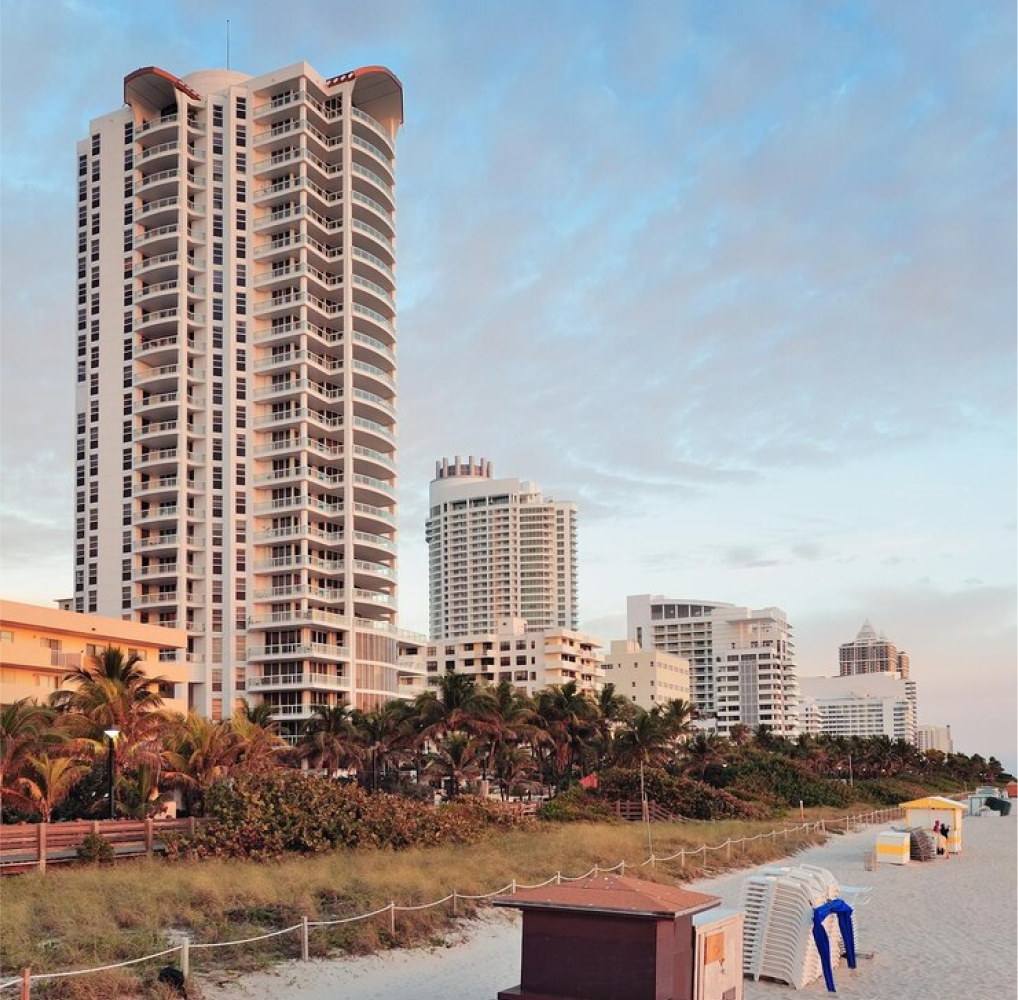
How to Apply?
You can submit an application for a tax receipt online or in person at the City of Miami Beach’s Finance Department, 1755 Meridian Ave., Miami Beach, FL 33138. After initial review and approval, and passing the fire inspection, the application is returned to the Finance Department for final review. The penalty for short-term rental without a tax receipt from the City of Miami Beach is $20,000 for the first. It increases by $20,000 for each subsequent offense.

Short-Term Rental Zoning Features
It is worth noting that strict zoning requirements apply in Miami Beach. Certain areas have limitations on short-term rentals. In particular, short-term rental of apartments or townhouses is not permitted in the RM-1, RM-PRD, RM-PRD-2, RPS-1, RPS-2, CD-1, RO, R0–3, and TH districts with few exceptions. Most of these zones are single-family residential areas. It is easy to check rental availability on the official zoning map of the Miami Beach Planning Department.
For instance, in North Beach, short-term rental is limited but can be conducted if certain requirements are met. Specifically, bookings are allowed only for entire houses for a minimum of seven nights and are subject to resort tax. Additionally, an accompanying application fee of $1,000 is imposed for short-term rentals in North Beach.
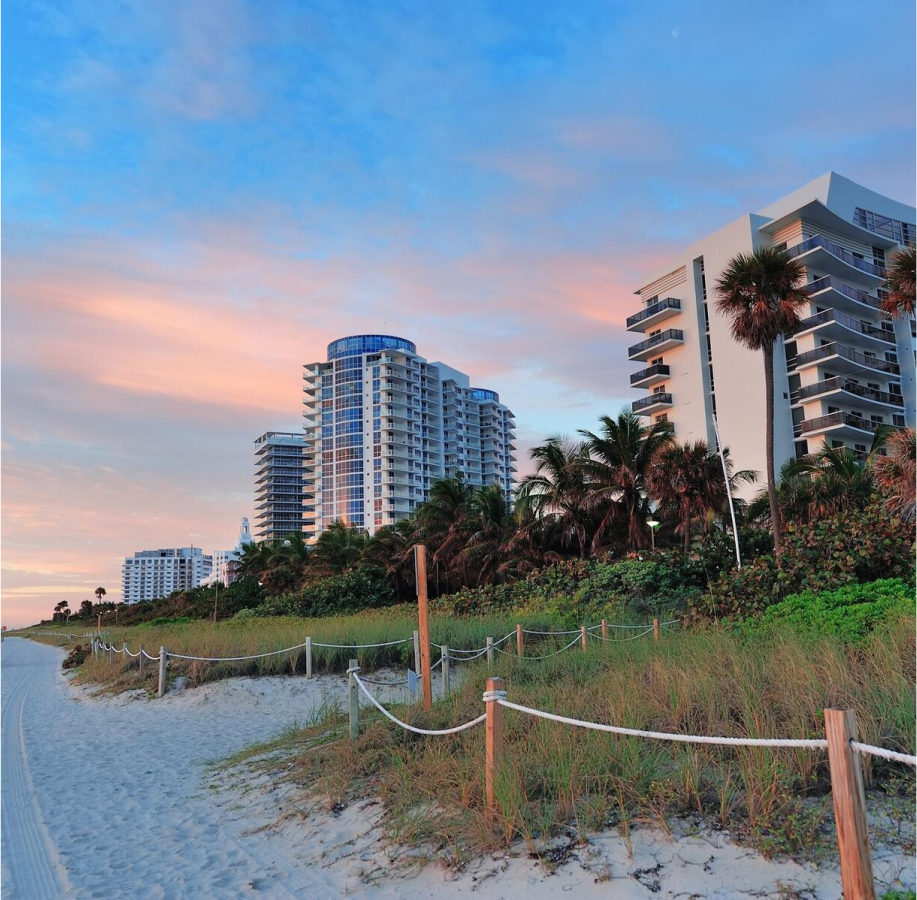
Summary
As you can see, the real estate in Florida is quite a laborious and complex area. Stay Todays associates work is related to following all the nuances of ever-evolving legislation, constant learning, patience with paperwork, and care for online applications.
Entering the Florida short term rental market also requires effort from potential investors. Searching for specs, market research, and document works require significant time investments.
Stay Today has comprehensive expertise in the Florida real estate market and in property management of short as well as long term rental properties. We regularly share useful information about the development of the real estate market in the Sunshine State of the USA. Feel free to contact us if you need a more in-depth consultation. Service cost of the application process for a short term rental with Stay Today experts support: $1,000 + fees.


Ready to start?
Lets call to our call center to take all answers on your questions!
